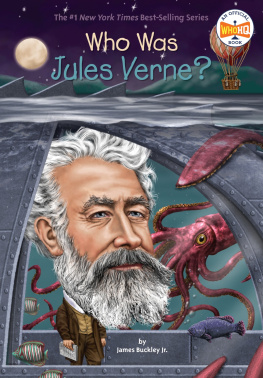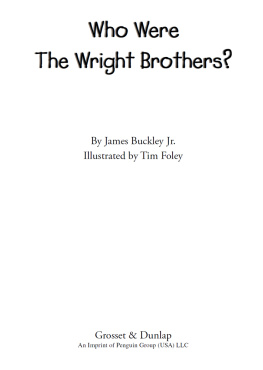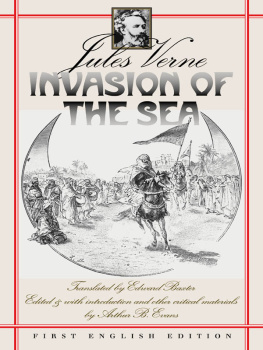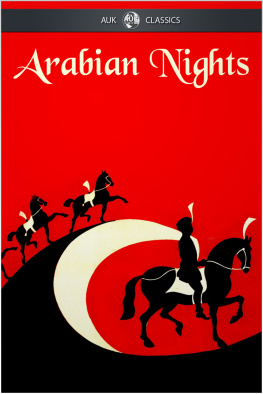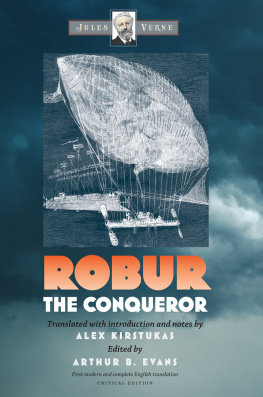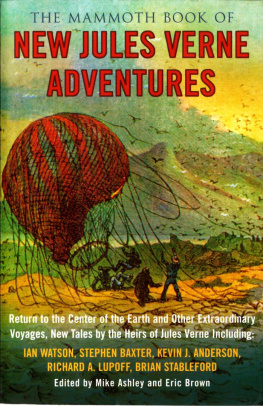Penguin supports copyright. Copyright fuels creativity, encourages diverse voices, promotes free speech, and creates a vibrant culture. Thank you for buying an authorized edition of this book and for complying with copyright laws by not reproducing, scanning, or distributing any part of it in any form without permission. You are supporting writers and allowing Penguin to continue to publish books for every reader.
The publisher does not have any control over and does not assume any responsibility for author or third-party websites or their content.
Text copyright 2016 by James Buckley Jr. Illustrations copyright 2016 by Penguin Random House LLC. All rights reserved.
Published by Penguin Workshop, an imprint of Penguin Random House LLC, New York. PENGUIN and PENGUIN WORKSHOP are trademarks of Penguin Books Ltd. WHO HQ & Design is a registered trademark of Penguin Random House LLC. Printed in the USA.
Visit us online at www.penguinrandomhouse.com.
CHAPTER 1
The Boy Who Loved Ships
Jules Verne was born on February 8, 1828, in Nantes, France. Almost as soon as he could walk, he was ready to travel.
The Verne family home was located on Feydeau Island, which is in the middle of the Loire River. The island is part of the city of Nantes. After about a year, the Vernes moved into the part of the city that was on the mainland, where Juless brother, Paul, was born in 1829. Their father, Pierre, was a successful lawyer. The family had a nice home with room for the two maids who helped their mother, Sophie.
The Vernes lived on the second floor of the building, because the first floor often flooded when the river rose above its banks. From the balconies in their home, Jules and Paul watched the boats move up and down the river. Nantes was where many ships from around the world arrived in France.
A shop not far from Juless home sold birds and animals from far-off lands. At night, Jules could sometimes hear the cries of parrots and monkeys from the shop.
As a young boy, Jules wanted more than anything to see the places those ships had come from. He later wrote, In my imagination, I climbed their shrouds [ropes], I scrambled to their topmasts, I gripped the knobs of their masts. How I longed to cross from the quayside [shoreline] and tread their decks! But Juless father had other plans for his firstborn son. He wanted Jules to become a lawyer, too.
When Jules was six, he and Paul were sent to a boarding school to begin their education. Although the school was not far from their home, the boys lived at the school. The brothers learned to read, write, and solve math problems. But when they could, they ventured into the fields. Jules later wrote that he and Paul would climb tall trees and rest in the branches. We chatted, read, and hatched plans to travel, while the branches [were] shaken by the wind.
When Jules was nine, Pierre rented a vacation cottage for the family in a village farther east along the river. While there, Jules and Paul finally learned to sail. They borrowed a small boat and put it into the shallow river. They were soon able to steer the boat, sail it with the wind, and begin to live out the adventures they dreamed of... even though they always returned home in time for dinner.
The following year, in the summer of 1838, Jules was sailing alone on the boat and ran into some trouble. A part of the bottom of the boat broke, and the little ship sank! Jules scrambled to a nearby sandbank. Surviving this small shipwreck, he felt like a castaway. He wrote later that he thought of making a hut or creating a fishing line to catch food. This happened in one of his favorite books, Robinson Crusoe. But the tide went out quickly, and Jules easily waded through the shallow water to the safety of the shore.
The Verne family eventually included three daughters as well: Anna, Mathilde, and Marie. With five children, Pierre and Sophie needed more room. In 1840, they moved to a new and larger apartment. Pierre had become very rich. The family could now afford beautiful furniture, a large clock over the mantel, and even separate rooms for the maids.

Castaways
The term castaway usually refers to a survivor of a shipwreck. The two most popular castaway stories of all time are Robinson Crusoe and The Swiss Family Robinson .
Robinson Crusoe was written by Daniel Defoe and published in 1719. It was based on the real-life adventure of a Scottish sailor named Alexander Selkirk. He had been stranded on an island and lived alone for many months. Defoes castaway, Crusoe, is alone at first, but later finds a native person he calls Friday .
In 1812, Swiss author Johann David Wysss book The Swiss Family Robinson was published. In that novel, a family with four sons is shipwrecked while on a journey to Australia. They are forced to live for a long time on an island in the Pacific.
Late in his life, Jules Verne wrote a sequel to the Wyss story. In 1900, his book The Castaways of the Flag was published, describing new adventures for the Robinson family.
Jules and Paul started at a new school. At St. Donatien, they studied Latin, Greek, and poetry. Jules found that he didnt like school much, but he did like writing. He wrote poetry and short stories, and he read as much as he could. As he read and wrote, Jules began to think that perhaps the life of a lawyer was not for him.

